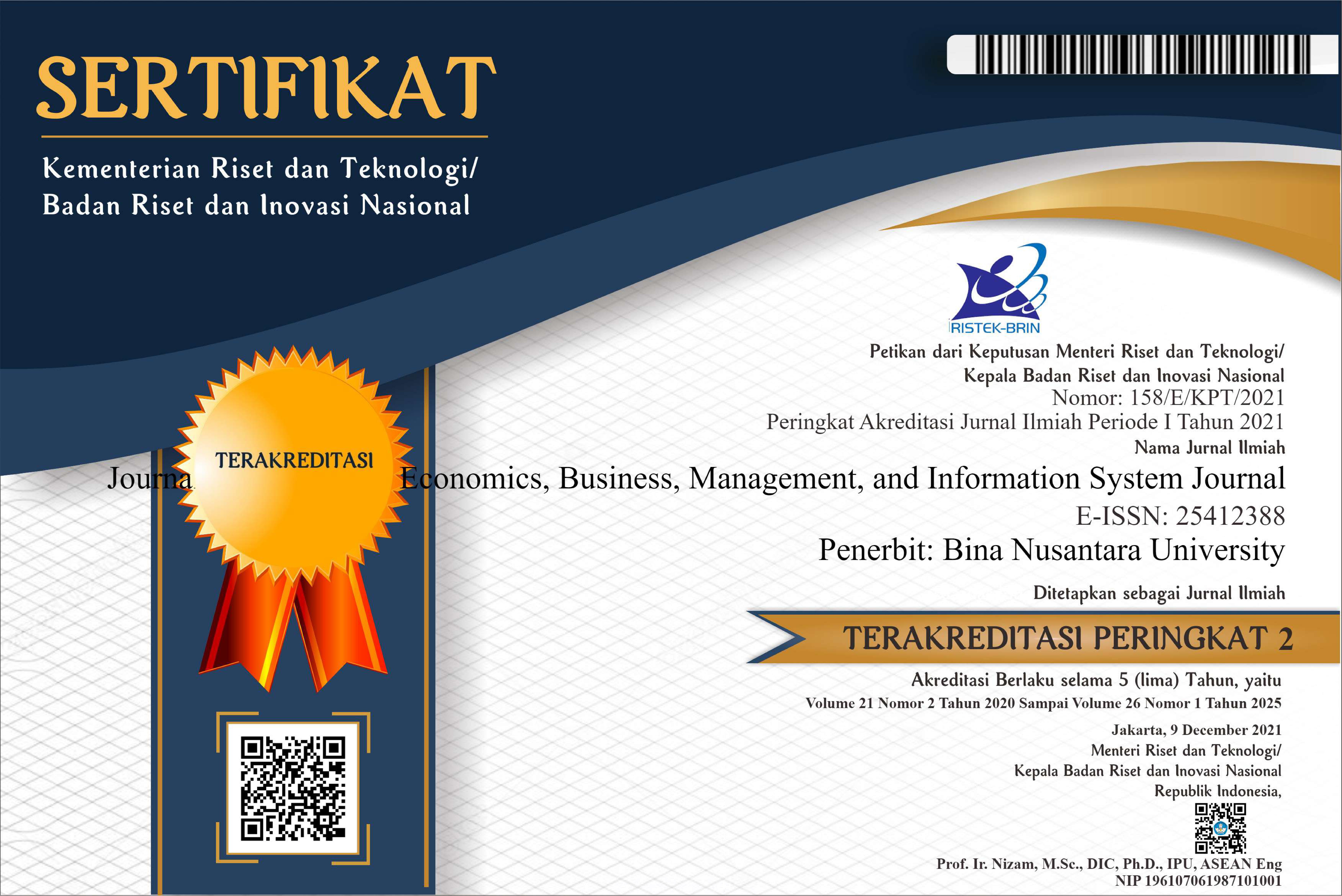A Study of Accountant Required Skills to Have Efficient Participation in the Implementation of XBRL
DOI:
https://doi.org/10.21512/tw.v13i1.664Keywords:
XBRL, accountant, participation and implementationAbstract
The role of the accountants in a business environment has been evolving over the years. Accountants need to have the implementation and maintenance skills of XBRL (extensible business reporting language) which is revolutionizing business reporting around the world, in the organization. The present study encompasses two aspects. First, it addresses the role of the accountant during the implementation and maintenance phase. Second, it finds the characteristics and skills of accountants that can help them in a successful implementation and maintenance of XBRL. In order to collect the data a questionnaire has been used. To analyze data two statistical methods, Regression and Pearson correlation have been used. The results of the study confirm that there is a significant relationship between the participation of accountants and successful implementation of XBRL.
Plum Analytics
References
Baldwin, Amelia A. & Trinkle, Brad S. (2011). The impact of XBRL: A Delphi investigation. The International Journal of Digital Accounting Research, 11, 1 – 24.
Bonson, E., Cortijo, V., & Escobar, T. (2009). A Delphi investigation to explain the voluntary adoption of XBRL. The International Journal of Digital Accounting Research, 193 – 205.
Bovee, M., Ettredge, M. L., Srivastava, R. P., & Vasarhelyi, M. A. (2002). Does the year 2000 XBRL taxonomy accommodate current business financial-reporting practice? Journal of Information Systems, 16, 165 – 182.
Bovee, M., Kogan, A., Nelson, K., Srivastava, R., & Vasarhelyi, M. A. (2005). Financial Reporting and Auditing Agent with Net Knowledge (FRAANK) and eXtensible Business Reporting Language (XBRL). Journal of Information Systems, 19, 19 – 41.
Burnett, R. D., Friedman, M., & Murthy, U,. (2006). Financial reports: Why you need XBRL. Journal of Corporate Accounting and Finance, 5, 33 – 40.
Dipiazza, S. A. Jr., Eccles, R. G. (2002). Building public trust. The Internet. New Jersey: John Wiley & Sons.
Jean-Baptiste, Rodney (2006), The Role of Accountants in the Implementation and Maintenance of Enterprise Resource Planning Systems. Capella University, Minneapolis.
Junsi, Li. (2007). XBRL taxonomy review and comparison between IFRS-GP taxonomy and CN listed company taxonomy (Master of Science thesis in accounting, Swedish school of economics and business administration).
Marshall, B., Mortenson, K., Bourne, A., & Price, K. (2010). Visualizing basic accounting flows: Does XBRL + model + animation = understanding? The International Journal of Digital Accounting Research, 10, 27 – 54.
Microsoft. (2002). Navision became part of Microsoft business solutions. Retrived from http://www.microsoft.com/.
Mohammad, Arab Mazar Yazdi. (2008). A study of impact of ERP on accounting process. Accountand journal, 180, 72-79.
Montgomery Research. (2002). Shared Services, Outsourcing and Enterprise Solutions. Competitive Financial Operations The CFO Project, 1.
Pinsker, R. (2003). XBRL awareness in auditing: A sleeping giant? Managerial Auditing Journal, 18, 732 – 736.
Rezaee, Z., Sharbatoghlie, A., Elam, R., & Mcmickle, P. L. (2002). Continuous auditing: Building automated auditing capability. Auditing: A Journal of Practice & Theory, 21, 147 – 163.
The Futurist. (2003). Technologies benefiting business. The Futurist, 37, 2 – 7.
XBRL International. (2007). XBRL International Progress Report. Retrived from http://www.xbrl.org/progressreports/2007_11_xbrl_progress_report.pdf.
Zhu Wenming. (2007). Continuous online auditing in the government sector. International Auditor. Retrieved from http://www.theiia.org/intAuditor/itaudit/archives/2007/june/continuous-online-auditing-in-the-government-sector/.
Downloads
Published
Issue
Section
License
Authors who publish with this journal agree to the following terms:
a. Authors retain copyright and grant the journal right of first publication with the work simultaneously licensed under a Creative Commons Attribution License - Share Alike that allows others to share the work with an acknowledgment of the work's authorship and initial publication in this journal.
b. Authors are able to enter into separate, additional contractual arrangements for the non-exclusive distribution of the journal's published version of the work (e.g., post it to an institutional repository or publish it in a book), with an acknowledgment of its initial publication in this journal.
c. Authors are permitted and encouraged to post their work online (e.g., in institutional repositories or on their website) prior to and during the submission process, as it can lead to productive exchanges, as well as earlier and greater citation of published work.
USER RIGHTS
All articles published Open Access will be immediately and permanently free for everyone to read and download. We are continuously working with our author communities to select the best choice of license options, currently being defined for this journal as follows: Creative Commons Attribution-Share Alike (CC BY-SA)

















